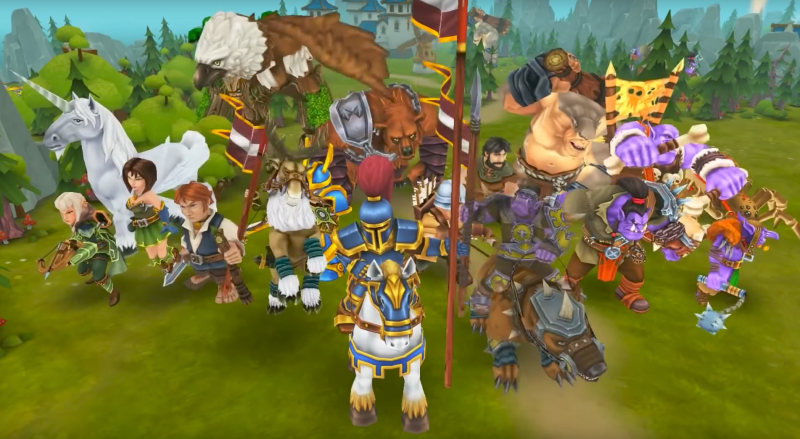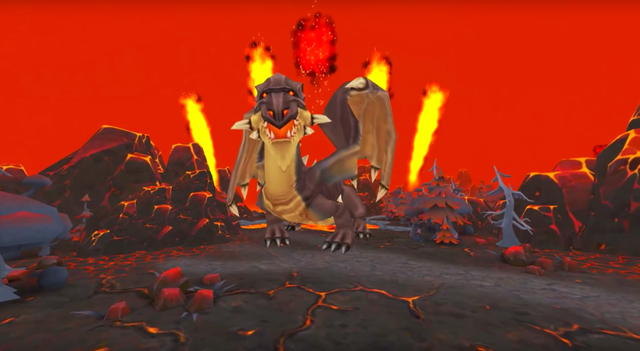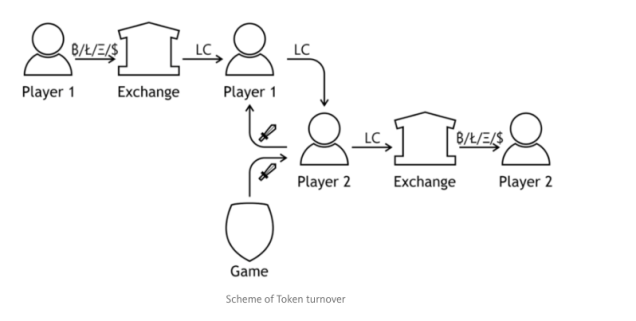Upcoming MMO's Cryptocurrency Marketplace Was Inspired By Other Games' Black Markets

At the point when illegal businesses create on the sidelines of most enormously multiplayer online pretending recreations, most designers would freeze. Be that as it may, with the present ascent of digital currencies like Bitcoin, a developing gathering of amusement producers are grasping some gamers' propensity to hand over diversion cash into genuine cash.
By and large, distributers frequently find a way to keep the offering of in-diversion money, similar to World of Warcraft gold, outside the amusement. "Engineers and distributers endeavor to smother such underground markets keeping in mind the end goal to diminish the impact that they have on in-amusement economies [and] player adjust," Russian programming designer and Active Games CEO Anton Telitsyn let me know over email.

A year ago, distributer Valve moved to stifle out Counter-Strike: Global Offensive's $7 billion in-diversion architect weapon betting business sector. Likewise, Blizzard has pursued 10 years in length fight against organizations—including detainee filled gold-cultivating work camps—that offer WoW gold for money.
With Active Games' MMORPG Lordmancer 2, following the 2011 allowed to-play versatile MMORPG Lordmancer, Telitsyn is adopting the inverse strategy. Lordmancer 2, in beta on Android at this moment, is a sword-and-sworcery RPG where players are welcome to openly buy and offer weapons and antiquities in-diversion with the amusement's custom cryptographic money Lord Coin, which can be traded for genuine cash outside of the diversion.
Along these lines, by step up and winning better things, players can mine cryptographic money with genuine esteem. "Rather than explicitly precluding additional amusement exchanging of assets, we attempt to make a sheltered, straightforward commercial center for exchanging diversion things and characters," Telitsyn said.

Gaining genuine cash by gaming is not a prominent idea, but rather it's not absolutely new, either: 2003's science fiction MMORPG Entropia Universe additionally keeps running off a genuine money economy. A reliable virtual cash to genuine cash conversion scale of ten-to-one keeps costs stable, and players can store cash in-amusement and pull back it to their genuine financial balances. In 2008, Entropia Universe earned a Guinness World Record for "most costly virtual question" after a player offer $335,000 on a space station.
Despite the fact that the diversion's distributer may support of it, it's important that a ton of these amusement markets can exist in a legitimate hazy area. Tax evasion or extortion may flourish. Some virtual cash markets may add up to illicit lotteries.
The buzz around cryptographic money fuelled MMORPGs developed with the presentation of Ethereum, which has detonated in notoriety since its creation in 2014. It's the digital money framework being utilized for Lordmancer 2 exchanges. Like Bitcoin, Ethereum's Ether is a computerized money. In June, the cost of one Ethereum coin topped at $400 per "Ether" coin. Dissimilar to Bitcoin, Ethereum utilizes something many refer to as "keen gets." It's exceptionally adjustable advanced cash.
The motivation behind why Lordmancer 2's engineers are building computerized monetary standards off Ethereum is on the grounds that the states of trade can be very dependable. "On the off chance that someone buys Lord Coins, they will be kept inside Ethereum," Teliysyn stated, "and even the engineers won't have an approach to transform anything but what was portrayed in Lord Coin's brilliant contract."
Quora’s description is quite good:
“Imagine automatically sending money from one person to another but only when a certain set of conditions are met. For example an individual wants to purchase a home from another person. Traditionally there are multiple third parties involved in the exchange including lawyers and escrow agents which makes the process unnecessarily slow and expensive. With Ethereum, a piece of code could automatically transfer the home ownership to the buyer and the funds to the seller after a deal is agreed upon without needing a third party to execute on their behalf.”
Manufacturing advanced economies in recreations was an early thought among Ethereum fans. Making it open and appealing is another story. Jon "Neverdie" Jacobs, who purchased a space rock in Entropia Universe for $100,000, built up with the assistance of Ultima maker Richard Garriott a digital currency he calls the Teleport token utilizing Ethereum in July with the grand long for planning a cash upheld foundation for a virtual products economy. The pitch: Gamified employments in virtual reality will procure the money, which will in the end be utilized crosswise over virtual reality universes. Sadly, virtual the truth innovation's introduce base is quite thin right now, so a clamoring economy doesn't appear to be likely sooner rather than later.
Additionally, Telisyn's Lordmancer 2 is cleaned in its beta state, however is, at base, a primitive diversion. He doesn't anticipate that anybody will be bringing home the bacon off the versatile MMORPG: "The measure of cryptographic money that a player can mine will depend just available cost of Lord Coin," he says. Likely, that cost will stay low, and in this manner so will a player's potential income.
Lordmancer 2 will start offering its Lord Coins on October 23rd. At the present time, its engineers are pitching the diversion to Chinese speculators, who know well the want for huge (and lawful) cash supported advanced commercial centers. Regardless of the possibility that these early alternatives don't blast, they might be laying the basis for more standard reception.